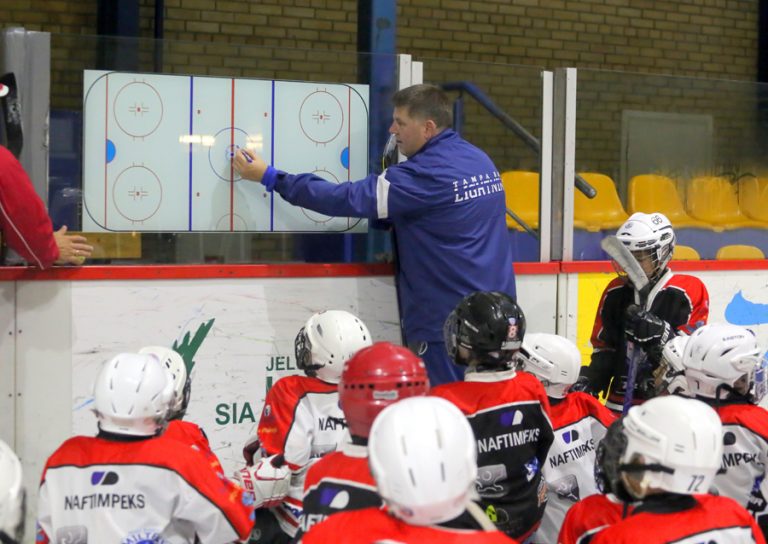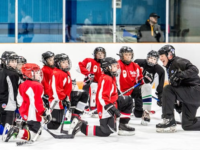Coaching is a difficult and equally important job.
A coach’s role is mainly to teach their student the fundamentals of whatever sport they’re learning, but a top-notch coach needs to impact their players’ lives in other ways, too. A coach should be a source of inspiration and guidance for their players. They should provide support in the face of a defeat and reinforcement in the face of a victory. They should actively assess each player’s strengths and weaknesses and fight to help their player improve in any way they can.
At minimum, a player will (usually) spend an entire sporting season with the same coach. Sometimes, a relationship between a player and a coach can last for years or even decades as the player advances through the levels of their sport and the coach is with them all along the way. As a result, the relationship between every coach and their player(s) should be strong and beneficial to both parties.
So, what factors make a coach-player relationship strong?
As you might predict, many of the elements that make up a great coach-player relationship in a sport make up a good relationship in general. There are also a few elements unique to a coach’s relationship with their player that creates a fantastic teacher-student dynamic.
Here are 5 things that every hockey player needs from their coach to have a successful relationship:
1. Openness
The most important feature of any good coach-player relationship is openness. The coach must reassure the players that they can discuss anything—-whether related to their sport or not—-without fear of judgement or ridicule.
Many people consider coaches to be “teachers.” A better term for a coach is a “mentor.” Not only should coaches pass on their knowledge in the most effective way possible, but they should also provide guidance and advice for their players on any issue they may have. If a player is disappointed in their progress or performance, they should feel free to talk with their coach about it. The same goes for an issue at home; a great coach should make players feel comfortable discussing things like family disagreements, emotions, and bullying.
For a coach, establishing a policy of openness and no judgement right form the beginning of the season is a great way to start forging strong relationships with the players.
2. Respect
As with any good relationship, there needs to be respect given from both sides. Since coaches are usually wise and older than their players, most coach-player relationships will have respect given by the player, but it’s not always the other way around.
All players need respect from their coaches, however. Respect is defined as the acceptance of someone else for who they are, even if their personality or beliefs differ from your own. When a coach shows their players respect, it establishes trust and comfort with the team. Plus, respect is two-sided; a coach who respects their players makes it easy for the players to reciprocate that respect.
When respect is present in a coach-player relationship, the player is more likely to listen and value the advice their coach gives them. The player will also be more likely to follow the requests of their coach, like showing up on time to games and working on skills at home. They’ll also be more motivated to focus and give their all at practice and during games.
As a coach, you can show respect to your team by:
- Listening intently to the opinions of your players
- Affirming your players (vocalizing positive qualities about them)
- Being polite and kind when interacting with the team
- Thanking and praising them when they display effort
3. Personal Investment
All players need their coach to display personal investment in them.
There’s a striking difference between a coach who sees each player as an individual potential hockey star, and a coach who sees their team as just another batch of kids they’ll need to train for the season. As it turns out, players can easily sense the difference, even at a very young age.
A player who feels their coach isn’t personally invested in them isn’t motivated to perform for their team or for the coach. They’re less likely to display passion or effort in practices and games because they don’t want to deliver their coach a win. Furthermore, they’ll be less motivated to improve at all, because they feel like the coach won’t care about the progress anyway.
Every coach should take some time to get to know their players individually. The coach should discuss each player’s goals, ambitions, strengths, and weaknesses, and use that information to tailor their teaching to each of their players. They should experiment to figure out which forms of praise, criticism, and motivation are most useful for each member of their team. As a coach, showing personal investment is relatively simple, and it goes a long way to the loyalty of their players and the success of their team.
4. Motivation
Every coach should strive to motivate their players to perform at their best and improve as much as possible. It’s assumed that motivation pairs with being a coach, but a coach who motivates their players well is rarer than you may think.
As a coach, you should strive to celebrate victory but not punish failure; show excitement at a win and optimism, not disappointment, at a loss. Praise effort and not outcome. As mentioned in the “personal investment” section, motivation should also be individually tailored to each player. Some players respond better to intense motivation, and others respond better to calmer, more complimentary motivation.
If a coach strives to motivate their team in an effective way, it makes a massive difference in the team’s success and the players’ desire to better themselves.
5. Compassion
The final important element that players need from their coach is compassion.
Many coaches are great at motivating and investing in their players but lack the skills when it comes to being compassionate. Compassion is defined as sympathy for the suffering and misfortunes of others, but a player doesn’t need to “have a misfortune” to be able to show compassion.
As a coach, understand that every age group from minors to pro comes with its own, unique set of problems. Players are worried about exterior relationships, fitting in, being accepted, performing at their best, etc. Ask about your player’s lives and demonstrate sympathy toward your players’ problems. Sometimes, players are unable to block out distractions and focus on the sport because of other things going on in their lives. Be aware of this and accept it as is, and just do your best to work around any issues your players may be dealing with.
Even the best coaches in the world aren’t perfect; every coach makes mistakes, whether in what they teach or how they act, at some point. If you’re a coach, keep in mind that you’ll make some blunders along the way. The important thing is correcting them quickly and always trying your hardest to inspire and lead your team.
If you’re a player, it’s also important keep in mind that your coach isn’t perfect. If he/she makes a mistake, loses their temper, or says something insensitive, simply point out the problem, forgive it, and try to move on.
So long as a coach tries to show openness, respect, personal investment, motivation, and compassion, they will surely make a fine teacher and leader.






